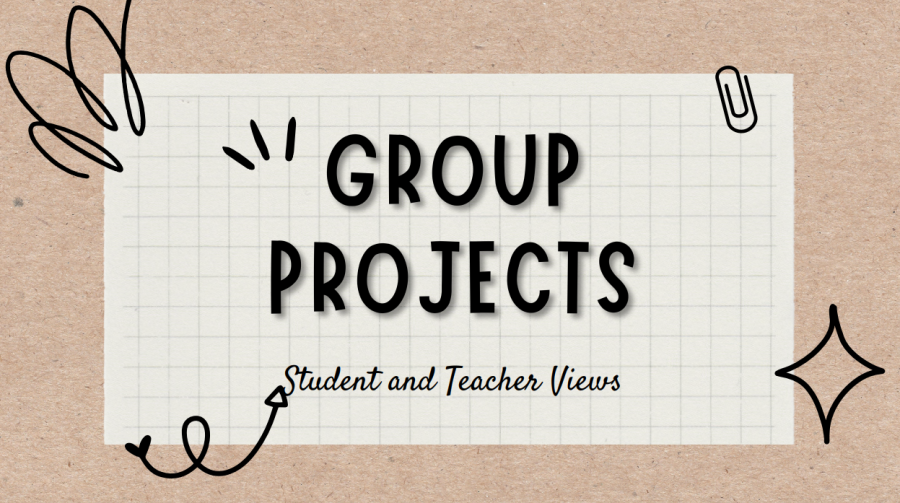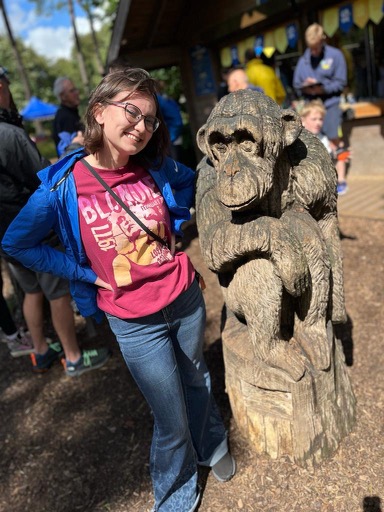The Group Work Debate
Students and Teachers See Many Different Benefits and Downsides to Group Projects
Working in teams is a part of school that people have very different opinions on.
May 30, 2023
For some they conjure a deep sense of dread, for others overwhelming indifference. Stances on group projects swing wildly for teachers and students alike, including Sophomore Caleb Miller.
“Pretty much overwhelmingly positive, I mean, downsides I’ve had with group projects (include) people not pulling their weight, or if it’s just something that me or other members aren’t passionate about, but if it’s an interesting topic and everyone’s doing what they should, it’s a good experience,” Miller shared.
Miller’s most recent experiences with group projects stem largely from his AICE Classical Studies class, where he and a few other students are working on a long term group project. The project involves reading and analyzing the text of the Aeneid, so far he thinks working with others is helping him learn more.
“There’s multiple perspectives on certain topics, like studying or reading the Aeneid with other people,” Miller said. “It allowed certain perspectives on the work and sort of aspects of it that I wouldn’t have got reading it alone. And that can apply to most anything. Just getting outside views on anything is good.”
Since classical studies is a topic that Miller feels passionately about, he found conversations within the group far more helpful and far more engaging, although that passion caused some minor conflict.
He also found that knowing that other people were sharing the responsibility of an assignment was sometimes a cause of lower personal productivity, but that group projects still led to improved communication skills.
“Being able to communicate more complex ideas effectively and being able to operate with others on a single task and being able to stay in touch when it comes to updates on things is very important,” Miller explained.
While group work is a staple in many classrooms, some teachers barely assign it at all. PreAICE World and AICE International History teacher Mr. Steven Johnson uses group work sparingly in his classes since switching from teaching middle school to high school.
“I think, at least specifically for my Cambridge students, because of the format of the Cambridge class in the Cambridge test, it is more focused on an individual person’s skills. And a lot of those skills that are being tested need to be skills that you develop independently,” said Johnson.
Johnson is far from completely against group work, though, as he sometimes uses it for assignments that make up a smaller chunk of student grades. Still, he does find that many extracurriculars can be used to develop the same skills Miller found to be a major benefit of group work.
“Any other sort of extracurricular activity as well (as Dungeons & Dragons), whether it’s, you know, an athletics thing, whether you’re on a team, whether you’re a part of some other sort of club or organization, all of those things mean that you need to work together, one way or another in order to achieve what the goal what the club or organization wants to achieve,” Johnson said.
Junior Erin Foley falls into a completely different set of students – those that are immediately apprehensive at the thought of a group project. This is largely out of concern for her grade. Not all teachers give all group members the same grade, but this is fairly common, especially in Foley’s dual enrollment courses. However, her perspective on the situation has not remained static during her time in high school.
“So in the beginning, I used to hate group projects. Because of the reason that everybody would have put in the same quality, and it’d be an overall grade,” Foley said. “But now, I’ve just learned to accept group projects and like it more because now it makes it a lighter load on my part. So I don’t have to do all the information myself.”
Her solution to group project frustration ended up being divvying up the work clearly early on in the process and pushing herself to improve her leadership abilities. Plenty of students, including Foley, are far from fond of group work, but Foley found that it was still a major part of how to learn to collaborate with others.
“This situation for me, it helped me stand up as a leader,” Foley shared. “I know that I can use that with other projects, because I know that there’s always going to be group projects (in) some way or form. And there’s some form where I have to do teamwork and collaborate with others and listen to their ideas and efforts. So yes, I think it’s going to reflect in (my) future life.”



